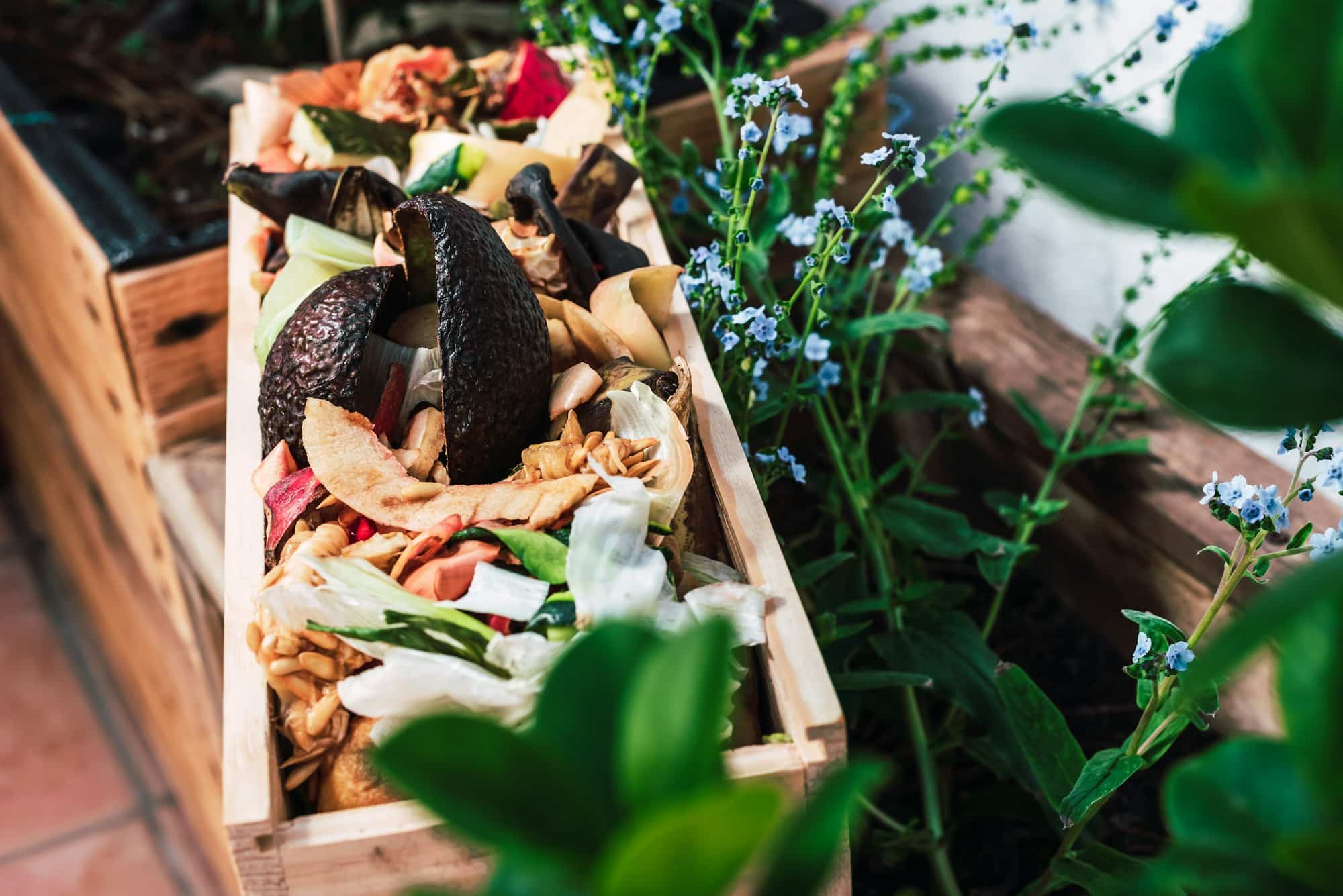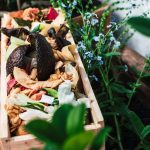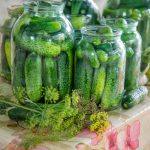Container gardening in a Manchester flat offers the chance to cultivate vibrant plants, even in limited space. However, choosing the right compost is essential for success. Not all composts are created equal, and the unique climate and conditions in urban environments require careful consideration. This guide simplifies the decision-making process, helping you find the perfect compost tailored to your needs, whether you're growing herbs, vegetables, or flowers. Let's explore how the right compost can transform your container garden into a thriving oasis.
Understanding the Importance of Compost in Container Gardening
Compost is an essential component in container gardening, playing a pivotal role in plant health and growth. It acts as a natural fertilizer, enriching the soil with vital nutrients that support robust plant development. The nutritional components of compost, such as nitrogen, phosphorus, and potassium, are crucial for container plants, ensuring they receive the necessary elements for photosynthesis and root strength.
A lire en complément : Essential Tips for Proper Septic Tank Maintenance in Your Rural English Home
Incorporating compost into your container gardening routine offers numerous benefits. Firstly, it enhances soil structure, promoting better water retention and aeration. This is particularly important in containers, where soil can easily compact, hindering root growth. Compost also introduces beneficial microorganisms, which help break down organic matter, making nutrients more accessible to plants.
Moreover, the environmental benefits of using compost in urban settings are significant. By recycling kitchen scraps and yard waste into compost, gardeners reduce landfill waste and lower their carbon footprint. Composting also diminishes the need for chemical fertilizers, which can leach into waterways, causing pollution.
A découvrir également : Choosing and Installing the Perfect Eco-Friendly Log Burner for Your Peak District Getaway
In summary, compost is a cornerstone of container gardening essentials, offering a sustainable solution that nurtures plants while benefiting the environment.
Types of Compost Suitable for Urban Container Gardening
In urban environments, selecting the right types of compost is crucial for container gardening success. Different compost varieties cater to diverse gardening needs, enhancing plant growth and sustainability.
Overview of Compost Types
- Organic compost: This type is made from natural materials, such as kitchen scraps and yard waste. It is rich in nutrients and supports healthy plant development.
- Peat-free compost: Often preferred for its environmental benefits, peat-free options are made from renewable resources, reducing ecological impact.
Homemade vs. Store-Bought Compost
Homemade compost offers the advantage of recycling household waste, creating a sustainable cycle. It can be tailored to specific plant needs, ensuring optimal nutrient balance. On the other hand, store-bought compost provides convenience and consistency. Brands like Miracle-Gro and Westland offer reliable options with balanced nutrient content.
Recommended Products for Manchester Flats
For urban gardeners in Manchester, products like Miracle-Gro Organic Choice and Westland New Horizon Peat-Free Compost are excellent choices. These brands are known for their quality and suitability for limited space gardening, ensuring that your container plants thrive even in compact urban settings.
Factors to Consider When Choosing Compost
When engaging in urban container gardening, selecting the right compost is a critical step. Several compost selection criteria should guide your decision to ensure optimal plant health and growth.
Drainage and Aeration
In container gardens, ensuring proper drainage and aeration is essential. Compost should be light and porous, allowing excess water to escape and air to circulate. This prevents root rot and promotes healthy root systems. Choose compost with materials like perlite or vermiculite, which improve aeration and drainage.
Nutritional Needs
Different plants have varying nutritional needs. It's crucial to select compost that provides a balanced nutrient profile tailored to your specific plant types. For example, flowering plants may require higher phosphorus levels, while leafy greens thrive on nitrogen-rich compost. Understanding your plants' needs helps in choosing the right compost.
Environmental Conditions
Urban gardeners must also consider environmental conditions. The local climate can affect how compost performs. In humid areas, compost with good drainage is vital, while in dry climates, moisture-retentive compost is beneficial. Adapting your compost choice to these conditions ensures your plants can thrive despite urban challenges.
Local Recommendations for Container Garden Compost
In Manchester, finding the right local compost providers can significantly enhance your container gardening experience. Several suppliers offer high-quality compost tailored for urban settings.
Local Suppliers
- Manchester Compost Centre: Known for its nutrient-rich blends, perfect for container gardening.
- Urban Garden Supplies: Offers a variety of compost options, including organic and peat-free choices.
Community Gardens and Workshops
Engaging with community gardens like Hulme Community Garden Centre provides access to workshops and shared resources. These spaces often offer hands-on learning opportunities and advice on composting techniques specific to urban environments.
Online Resources and Forums
For those seeking additional support, online platforms like the Manchester Gardening Forum serve as valuable resources. These forums connect gardeners, facilitating the exchange of tips, compost recommendations, and troubleshooting advice. Websites such as Urban Gardening UK also provide comprehensive guides and reviews on local compost options.
By leveraging these Manchester gardening resources, urban gardeners can make informed decisions about their compost choices, ensuring their container plants receive the best possible care.
Tips for Successful Container Gardening in Small Spaces
Navigating the world of container gardening in compact urban settings requires strategic planning and thoughtful execution. Here are some essential tips to help you flourish in small spaces.
Selecting the Right Containers
Choosing the appropriate containers is crucial for urban gardening success. Opt for containers that are proportional to the plant's size and growth potential. Consider materials like terracotta or plastic, which offer different benefits in terms of water retention and durability. Ensure containers have adequate drainage holes to prevent waterlogging and root rot.
Companion Planting and Maximizing Space
In small spaces, companion planting is a valuable technique. Pair plants that have compatible growth habits and nutrient needs. For example, tomatoes and basil thrive together, as basil can deter pests while enhancing tomato flavour. Vertical gardening solutions, like trellises or stacked pots, can also help maximize space efficiency.
Watering and Maintenance Tips
Consistent watering is vital in container gardening. Containers tend to dry out faster than ground soil, so monitor moisture levels regularly. Consider using self-watering pots or drip irrigation systems to maintain optimal hydration. Regular maintenance, including pruning and fertilizing, ensures that plants receive the necessary care to thrive in restricted spaces.
Inspiring Examples of Container Gardens in Manchester
In Manchester, container gardens are transforming urban spaces into lush, green sanctuaries. Urban gardening success stories abound, showcasing the creativity and resilience of local gardeners.
Case Studies of Successful Container Gardens
One standout example is a flat in the Northern Quarter, where a balcony has been transformed into a thriving container garden. Using a mix of vertical planters and hanging pots, the resident grows herbs, tomatoes, and even strawberries in a compact space. This innovative design maximises sunlight exposure and efficiently uses limited space.
Innovative Urban Gardening Designs
Another inspiring story comes from a community project in Hulme, where residents collaborated to create a shared garden using recycled materials. The garden features container garden examples like upcycled wooden crates and repurposed barrels, demonstrating sustainable practices.
Local Urban Gardeners' Insights
Local gardener, Sarah Thompson, shares her experience: "Container gardening in Manchester is all about creativity. You can turn any small space into a green oasis with the right approach." Her advice highlights the importance of adaptability and resourcefulness in urban gardening.
These examples illustrate the potential of container gardening to enrich urban living, offering both aesthetic and environmental benefits.
















